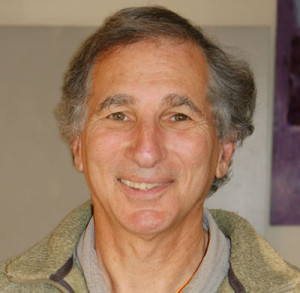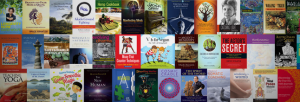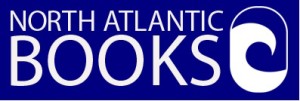David Wilk Interviews Richard Grossinger of North Atlantic Books
May 22, 2016 by David
Filed under Publishing History, PublishingTalks, The Future
Publishing Talks began as a series of conversations with book industry professionals and others involved in media and technology about the future of publishing, books, and culture. As we continue to experience disruption and change in all media businesses, I’ve been talking with some of the people involved in our industry about how publishing might evolve as our culture is affected by technology and the larger context of civilization and economics.
I’ve now expanded the series to include conversations that go beyond the future of publishing. I’ve talked with editors and publishers who have been innovators and leaders in independent publishing in the past and into the present, and will continue to explore the ebb and flow of writing, books, and publishing in all sorts of forms and formats, as change continues to be the one constant we can count on.
It’s my hope that these conversations can help us understand the outlines of what is happening in publishing and writing, and how we might ourselves interact with and influence the future of publishing as it unfolds.
Over the past few years, I’ve talked to a number of independent publishers in an effort to document the extraordinary period of the past 40 years, which has been a sort of golden age of innovation and creativity, as publishing has literally been redefined. The number of great publishers established during this time in almost every category of publishing is pretty incredible.
One of the presses that has had a special impact on my own work is North Atlantic Books, founded by Richard Grossinger and Lindy Hough, as a transformation of their literary journal, Io, which they began together in 1965 as undergraduates at Amherst and Smith Colleges respectively. Richard and Lindy have been important mentors, friends, and colleagues to me for more than forty years, and their influence on my thinking about writing, ideas and books has been profound.
Since both Richard and Lindy are writers and editors with their own individual interests and styles, I thought it would make sense to interview each of them separately for this Publishing Talks series of conversations. Each of these conversations can stand independently or together. They tell two versions of an almost mythologic story, which I hope listeners will find as compelling as it was for me when I spoke to them.
Io is one of a number of influential literary magazines established in the sixties and seventies, publishing poets, film-makers and visual artists, many of whom were related to what has become known as the New American Poets, with influences ranging from Black Mountain College and the New York School to hermeticism and mystical spirituality. Io was singular in that it was most frequently a one-subject magazine, and this led eventually to the establishment of North Atlantic Books, which was incorporated in 1974 as a non-profit literary publisher in California.
Richard Grossinger was born November 3, 1944, and grew up in Manhattan. He graduated from Amherst College in June 1966 with a B.A. in English. That same month he married Lindy Hough, who attended Smith College in Northampton, Massachusetts.
He received a Ph.D. in anthropology from the University of Michigan for an ethnography incorporating economic and ecological studies of fishing communities in Eastern Maine and subsequently taught anthropology and other subjects at the University of Maine and Goddard College.
Io published 23 issues through 1976 before merging with North Atlantic and converting its publications to anthologies thereafter. Richard and Lindy served as the co-publishers of North Atlantic Books from 1974 onward, and Grossinger now functions mainly as acquisitions editor, while the press is run by its staff and board of directors.
Grossinger is the author of many books including Planet Medicine, The Night Sky, Embryogenesis, New Moon, Migraine Auras, On the Integration of Nature, and The Bardo of Waking Life.
This is the “official” description of North Atlantic Books, taken from its website:
North Atlantic Books is a nonprofit publisher committed to an eclectic exploration of the relationships between mind, body, spirit, and nature. Founded in 1974 by Richard Grossinger and Lindy Hough, NAB aims to nurture a holistic view of the arts, sciences, humanities, and healing. Over the decades, it has been at the forefront of publishing a diverse range of books in alternative medicine, ecology, and spirituality. NAB is the publishing program of the Society for the Study of Native Arts and Sciences, a 501(c)(3) nonprofit educational organization that promotes cross-cultural perspectives linking scientific, social, and artistic fields. With more than one thousand books in print, NAB has operated from Berkeley, California, since 1977.
My conversation with Richard Grossinger was recorded in December, 2016. This interview runs 52 minutes.
More about Richard Grossinger here.
Richard’s history of North Atlantic Books is on his website here. Companion interview with co-editor and co-publisher Lindy Hough is here.
Podcast: Play in new window | Download
David Wilk interviews Bradford Morrow of Conjunctions Magazine
March 17, 2014 by David
Filed under Ebooks and Digital Publishing, Publishing History, PublishingTalks
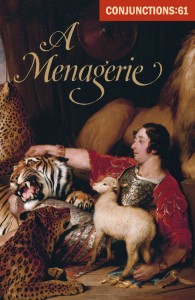 Publishing Talks began as a series of conversations with book industry professionals and others involved in media and technology about the future of publishing, books, and culture. As we continue to experience disruption and change in all media businesses, I’ve been talking with some of the people involved in our industry about how they believe publishing might evolve as our culture is affected by technology and the ebb and flow of civilization and economics.
Publishing Talks began as a series of conversations with book industry professionals and others involved in media and technology about the future of publishing, books, and culture. As we continue to experience disruption and change in all media businesses, I’ve been talking with some of the people involved in our industry about how they believe publishing might evolve as our culture is affected by technology and the ebb and flow of civilization and economics.
Recently, the series has expanded to include conversations that go beyond the future of publishing. I’ve talked with editors and publishers who have been innovators and leaders in independent publishing in the past and into the present, and will continue to explore the past, present and future of writing, books, and publishing in all sorts of forms and formats, as change continues to be the one constant we can count on.
It’s my hope that these conversations can help us understand the outlines of what is happening in publishing and writing, and how we might ourselves interact with and influence the future of publishing as it unfolds. My latest interview reflects my interest in the history of independent literary publishing, an area I have been involved in for a very long time.
Bradford Morrow is an accomplished novelist and poet. In fact we talked about his outstanding novel The Diviner’s Tale in 2011. Brad is also the founder and editor of Conjunctions magazine, which he began in 1981. Conjunctions is truly an exceptional literary endeavor that is now sponsored and hosted by Bard College. Conjunctions has long provided a platform for a host of unknown writers, many of whom are now well known, as well as enabling a number of established writers to create work that challenges reader expectations. Every May and November the magazine publishes anthology form collections around specific themes that include significant long-form work.
Conjunctions has embraced digital publishing, offering a weekly online journal of new work by individual authors, called Web Conjunctions, as well as a multimedia collection of recorded readings, and an archival collection of full-text selections from the anthologies. In particular, I like this line on their website, as an appropriate epigraph for the three-plus decades Conjunctions has been publishing: “a living notebook in which authors can write freely and audiences can read dangerously.” I can’t think of a better motto under which to publish.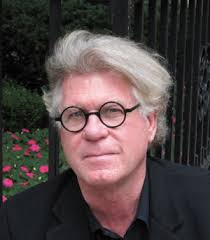
It was a pleasure for me to spend some time talking to Brad about the past, present and future of Conjunctions and the challenges and enjoyments of the work of literary publishing, and I hope also just as much a pleasure for you to hear what Brad has to say here.
(Alert to listeners – as are many of the Publishing Talks interviews, this one is quite long at 51 minutes, but you can always pause and return if it’s too long for one sitting)
Podcast: Play in new window | Download

